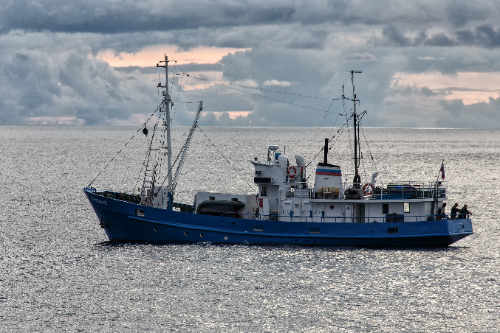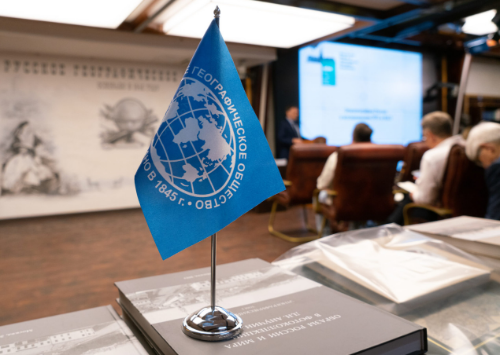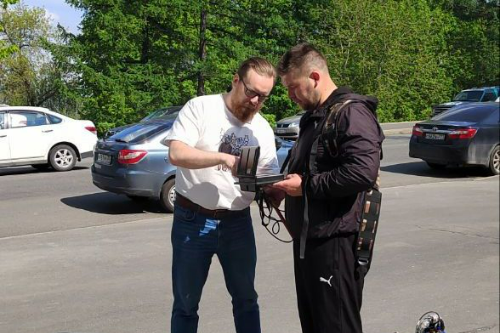As Galina Borodulina told to the KarRC RAS Learned Council, explorations in Karelia have been done for 40 deposits of groundwater for utility and drinking water supply and 3 mineral water deposits. In 2021, 30 deposits were in use. Several settlements have centralized groundwater supply systems (the largest one is the town of Olonets). The dominant facilities however are private boreholes. Northern Water Problems Institute KarRC RAS has created a unique database of groundwater of Karelia with information pooled together from official cadasters, archival materials, and records of private borehole drilling. The number of the latter in the database is around a thousand.
Researchers at the Institute have developed a method for quantifying subsurface flow with lake regulation taken into account, performed computations of natural groundwater resources of Karelia, identified regional patterns in the formation and distribution of groundwater, dissolved gases, micro-components. Early in the 2000s, scientists studied the patterns of groundwater distribution in Quaternary sediments and identified the most promising areas for public drinking water supply. Specialists at the Institute carry out assessments of the geological and ecological state of groundwater and its long-term monitoring in Petrozavodsk and other places and facilities.

Galina Borodulina named the medical and environmental problems for the use of groundwater for drinking water supply in Karelia. Firstly, they contain excessive amounts of iron and manganese. These elements have no pronounced toxic effect, but are subject to sanitary and hygienic regulation: they cause astringent taste, color, turbidity, and scale on vessels and pipes. Manganese has a negative effect on iodine metabolism. Secondly, they often contain elevated concentrations of radon, which has a half-life of over 3 days. Thirdly, researchers have reported growing nitrate contamination of groundwater.
High iron and radon concentrations can be used for health care purposes. The highest iron content in water is known for Martsialnye Vody (Martial Waters) – Russia’s first spa resort. Staff of the Hydrochemistry and Hydrogeology Laboratory regularly monitor the resort’s boreholes. In Kostomuksha, high-radon water from Kondokskoe deposit is used for medical purposes. Its reserves were also estimated by the Northern Water Problems Institute KarRC RAS.
Scientists are concerned about groundwater contamination with nitrates, which mostly come from communal and domestic wastewater discharges.
– It is alarming that high nitrate concentrations start showing even in water from boreholes through crystalline bedrock, meaning contamination has reached the lower horizon, too, – Galina Borodulina remarked.
She stated that high nitrate pollution of groundwater in settlements not only makes the sources unacceptable for drinking water supply but also affects the salt balance of lakes.
Concluding her talk, Galina Borodulina highlighted the need to update information on groundwater springs of Karelia and to publish a new catalog thereof. The previous catalog of Karelian springs was published in the 1970s. The institute’s database currently contains information about 1600 springs.
– Many of them have interesting natural characteristics, attractive landscape settings and historical background, and can be used as sources of potable and mineral water, – the researcher noted.

Commenting on the hydrogeologist’s lecture, Director of the KarRC RAS Institute of Geology Sergey Svetov also emphasized the problem of finding nitrates in water at great depths. He predicts that as land use and suburban construction intensify, the pollution may reach a peak in 5-7 years. The problem is aggravated by uncontrolled use of boreholes and lack of regulatory requirements for their final product, as well as by the absence of water treatment facilities in many settlements.
– This is a health issue for all of us and advancements are needed. We need to work with legislation regarding the regulation of the use of underground resources, to try to revive the program for high-quality public water supply and water protection, – the director is convinced.
KarRC RAS Director General Olga Bakhmet concurred to the topicality of the subject and the need to draw more resources to its study. The Learned Council resolved that a memo should be prepared for the republic’s authorities.
In the second part of the meeting, KarRC RAS Secretary for Science Natalia Fokina presented the schedule of scientific and science-administration events in 2023. Judging by institutes’ plans, the next year will be rich in conferences, seminars, and other events.

Head of the Postgraduate Department Olga Koshman told about changed in the regulations on the training of scientists-to-be. Postgraduate studies remain as a stage in training, but more focus compared to previous years will be placed on doing research and writing the dissertation.
Before closing the meeting, Olga Bakhmet on behalf of the gathering congratulated Nina Nemova, KarRC RAS Research Area Leader, Doctor of Biology, member of the KarRC RAS Learned Council, on having been elected Academician of the Russian Academy of Sciences.
– I’m pleased to say that for the first time in the history of the Karelian Research Centre RAS its employee has been elected Full Academician of the Russian Academy of Sciences, – the leader emphasized.
The next meeting of the KarRC RAS Learned Council will take place in September 2022.











